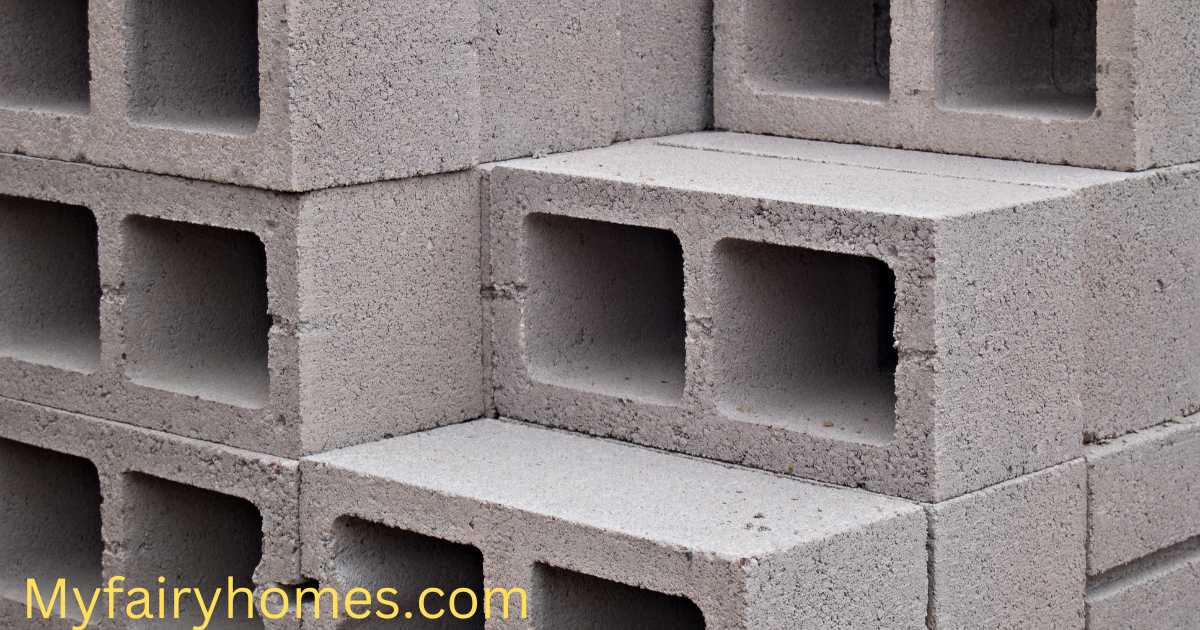Cinder blocks are an essential building material used in construction projects worldwide. They are known for their durability, affordability, and versatility. However, the weight of a cinder block can vary based on various factors such as size, material, and manufacturing process. As a result, it’s essential to understand the weight of cinder blocks before using them in your construction project. In this definitive guide, we will explore the weight of cinder blocks, different types, and factors that can affect their weight. Whether you’re a professional builder or a DIY enthusiast, this guide will provide you with all the necessary information you need to know about the weight of cinder blocks.
This guide on the weight of cinder blocks will provide detailed information about the different types and their average weights. We will discuss the weight of standard cinder blocks and the weight of other types, such as lightweight cinder blocks, hollow cinder blocks, and decorative cinder blocks.
We will also explore the factors that can affect the weight of cinder blocks, such as the material used, manufacturing process, and block size. Understanding these factors will help you make informed decisions when choosing the right cinder block type for your project.
In addition to the weight of cinder blocks, we will also cover how to calculate the weight of them and provide tips for handling them safely. Finally, we will discuss the importance of proper lifting techniques and equipment when handling heavy cinder blocks.
Whether you’re planning a small DIY project or a large construction project, this definitive guide on the weight of cinder blocks will give you all the information you need to make the right choices and ensure the success and safety of your project.
What is a Cinder Block?
A cinder block is a rectangular building material commonly used in construction. It is made from cement, coal ash, or fly ash, byproducts of coal-fired power plants. Cinder blocks are also known as concrete masonry units (CMUs) due to their composition. They come in various sizes and shapes, including hollow and solid blocks. One of the most common questions about cinder blocks is their weight. The weight of a cinder block depends on its size and type. A standard 8-inch-by-8-inch-by-16-inch solid cinder block weighs approximately 28 pounds.

Meanwhile, an 8-inch-by-8-inch-by-16-inch hollow core block weighs around 22 pounds. These weights may vary slightly depending on the manufacturer. Cinder blocks are widely used in residential, commercial, and industrial construction projects for their durability, strength, and affordability.
“Discover the Definitive Guide on Cinder Block Weight”.
Cinder blocks are a popular building material used for various construction projects, including walls and foundations. One of the essential things to know before using cinder blocks is their weight. Knowing how much a cinder block weighs can help you calculate the number of blocks needed for your project and ensure that you have sufficient resources to complete it. A standard concrete cinder block weighs between 28-30 pounds. However, this weight may vary based on several factors, such as dimensions, design, and material quality. For instance, lightweight or hollow-core cinder blocks can weigh significantly less than standard ones while delivering adequate structural support. It’s crucial to note that different types of cinder blocks come with varying weights. Suppose you’re working on a project where load-bearing capacity matters most. In that case, heavyweight or solid-block options will be more appropriate since they offer more strength and durability than their lightweight counterparts.
“How to Calculate the Weight of Cinder Blocks: An Expert Guide for Beginners”
Cinder blocks are commonly used in construction projects, and it’s essential to know their weight before handling them. The weight of a cinder block can vary depending on its size, shape, and material composition. In this expert guide for beginners, we will cover everything you need to know about how much a cinder block weighs. Firstly, let’s discuss the standard size of a cinder block- 8 inches by 8 inches by 16 inches. A typical cinder block weighs between 28 and 32 pounds or about 14 kilograms. However, the weight may vary based on its density and texture. To calculate the total weight of a particular number of cinder blocks in a project, multiply the number of blocks required by their average weight per piece. It would help if you also considered any additional materials’ weight needed for transport or installation purposes.
“Get to Know Cinder Block Weights: The Ultimate Guide for Homeowners and Builders!”
Cinder block weights are crucial for anyone involved in construction or home improvement projects. Whether you’re building a retaining wall, laying the foundation for your new home, or need to make some small repairs, understanding how much a cinder block weigh is essential. Cinder blocks are versatile and durable building materials used for decades due to their durability and low cost. Cinder blocks may vary in weight depending on their size and composition. Standard cinder blocks typically weigh around 28 pounds each, while lightweight cinder blocks weigh as little as 22 pounds. However, it’s important to note that some speciality cinder blocks can weigh as much as 40 pounds or more. Before starting any project involving cinder blocks, it’s important to determine the weight of the blocks you’ll be using so you can plan accordingly.
“Nailing Down The Numbers: A Guide on Cinder Block We
Cinder blocks are one of the most popular building materials used today. They are versatile, durable, and cost-effective. However, before you start designing or constructing a structure using cinder blocks, it is essential to understand how much each block weighs. It will help you determine the amount of weight your foundation can bear and ensure safety. The weight of a standard cinder block varies depending on its size and composition. For example, a 4-inch solid cinder block weighs around 10 pounds, while an 8-inch hollow core block can weigh up to 33 pounds. The density of the material also affects its weight; lightweight cinder blocks made with expanded shale or clay aggregates are significantly lighter than those made with denser materials like sand or gravel. Therefore, when calculating the total weight of your project’s cinder blocks, consider their weights, quantity, and placement in the structure’s design.
“Unlock the Facts: Exactly How Much Does a Cinder Block Weigh?”
When it comes to construction and DIY projects, cinder blocks are an essential building material. They’re sturdy, durable and affordable, making them popular for building everything from garden walls to full-blown houses. But before you start planning your next project, how much does a cinder block weigh? The exact weight of a cinder block varies depending on its size and composition. Standard cinder blocks measure 8 inches by 8 inches by 16 inches and typically weigh between 28 and 30 pounds. However, there are also lightweight cinder blocks weighing as little as 22 pounds and heavyweight blocks weighing up to 40 pounds or more. Knowing the weight of the specific type of cinder block you’ll use is crucial for planning your project.
Weight Variations: Different Sizes and Shapes
Weight variations are a crucial aspect of construction and engineering. The weight of an object depends on its size, shape, and material composition. For instance, cinder blocks vary in weight depending on their dimensions. A standard 8-inch by 8-inch cinder block weighs around 28 pounds. However, the weight can range from 24 to 44 pounds depending on other factors, such as the type of aggregate used in its production.

Similarly, larger cinder blocks weigh more than smaller ones due to the increased amount of material used. Knowing how much a particular object weighs is essential for many reasons. For example, in construction projects, it helps determine if a structure can support its weight or if additional reinforcement is necessary. In addition, engineers use weight measurements to calculate loads and design structures that meet safety standards. Therefore, having accurate information about weight variations is vital in ensuring successful project completion without any unforeseen setbacks or accidents.
Speciality Blocks: Exact Weight Dependent on Design
Speciality blocks have become a popular choice for construction projects in recent years, and for a good reason. They offer unique designs that allow builders to create stunning structures that stand out. However, with these speciality blocks comes the question of weight. How much does a cinder block weigh? The answer depends on the design. Unlike standard cinder blocks, speciality blocks are designed to have exact weights based on their unique shapes and sizes. This means that builders can ensure accuracy in their calculations regarding load-bearing walls and other important structural elements. Some speciality blocks may be lighter than traditional cinder blocks, while others may be heavier depending on their intended use. It’s important to note that not all speciality blocks are created equal in weight distribution. Builders must carefully consider the specific design of each block they plan to use and its intended purpose before making any final decisions.
Conclusion:
Cinder blocks are an important building material for many structures. Therefore, knowing their weight is important to ensure their safe and effective use of them. The average cinder block weighs about 30-35 pounds per square foot, but this can vary depending on the type of material used in the block’s construction. Therefore, it is best to consult building codes and hire a qualified professional when calculating the exact weights of specific materials.

